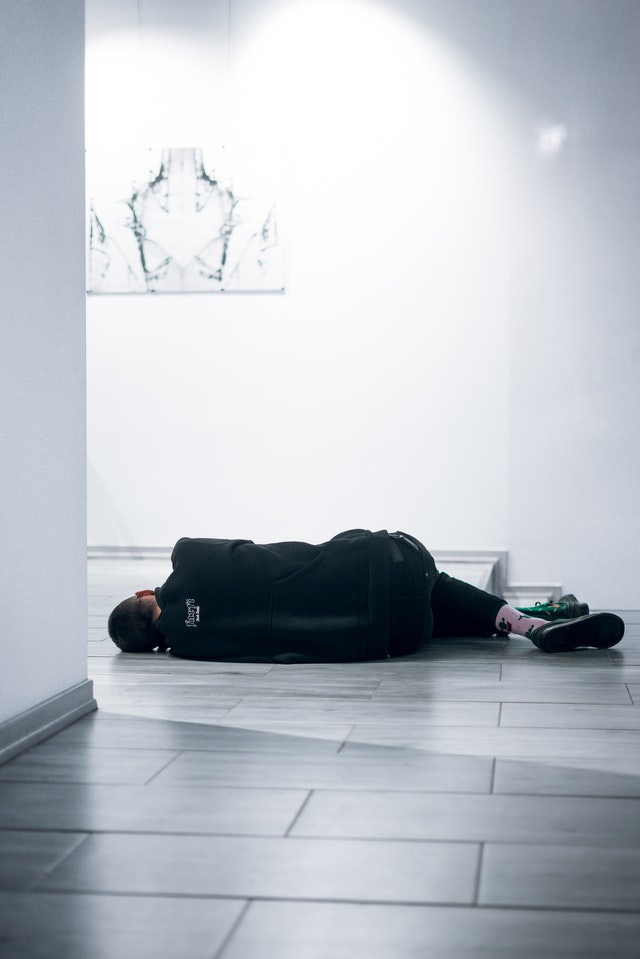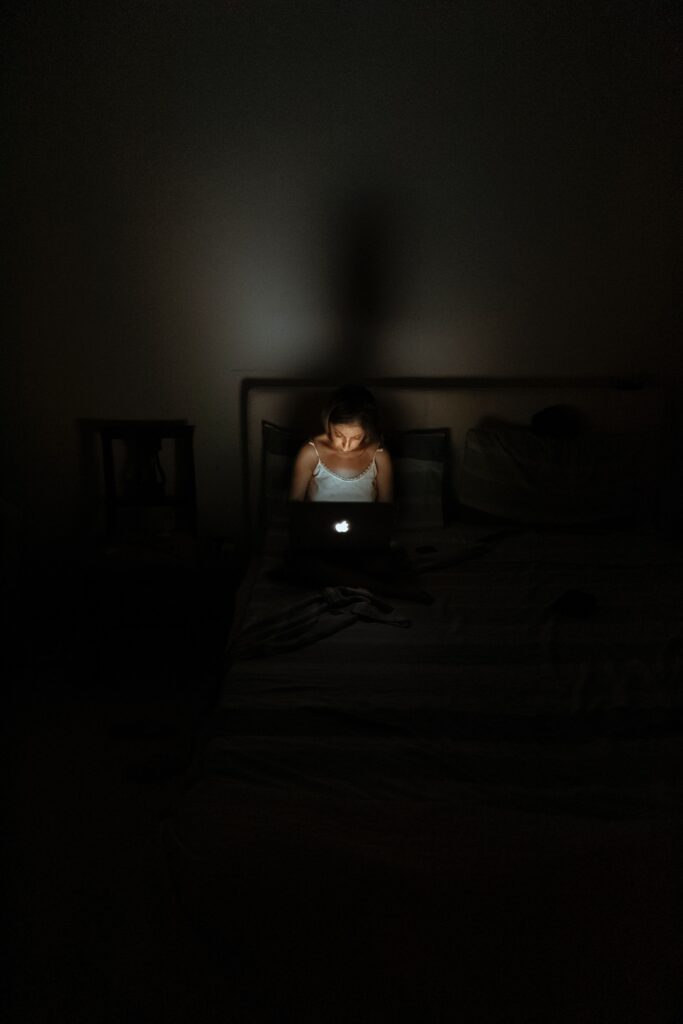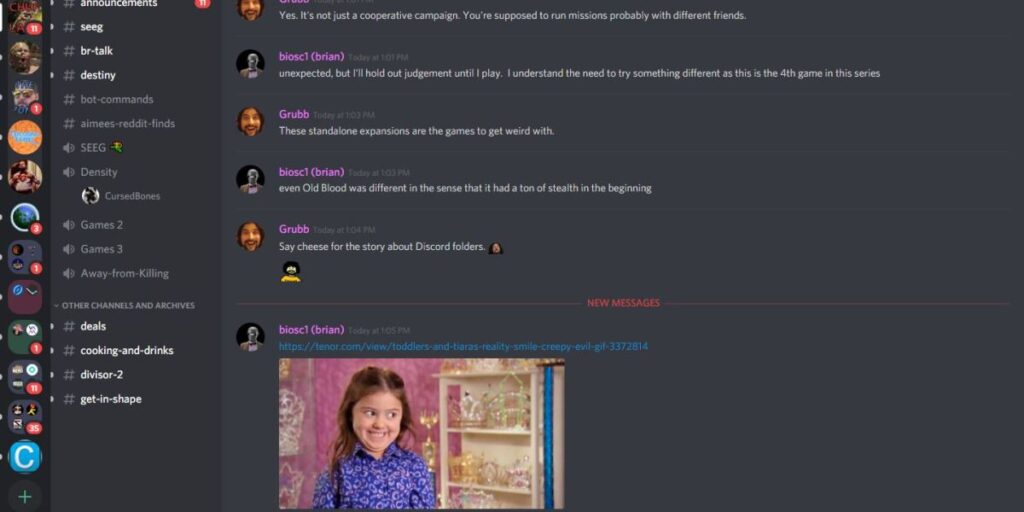Generation: Burnout

Image Credit: Sebastian Sørensen
This blog post is part advisory tale and part op-ed. I start off with telling my story leading into the pandemic, and then relating it to the challenges we all face adapting to a changing global workforce, and work expectations.
Leaving Insanity
In 2018 I wrote a long article about the challenges facing millennials and younger generations amidst an economic and vocational landscape which, in the pre-pandemic years, I imagined couldn’t possibly get any worse. (Hah!)
Vancouver, where I lived, had seen housing prices climb 380.5% in a decade; rising from a median of $690K for detached house in 2005 to $1.9M in 2015. Even in a pandemic, the median price in January, 2021, is still over $1.3M. As of this writing, the entry-point to the market is a 380 square foot (35 m²) bachelor suite in a fifty-one year old building in New Westminster selling north of $165K, ground level in an older neighborhood.
By the end of 2018 my wife and I had found Vancouver prohibitively expensive and had begun looking to make a significant change in our lives and geography. I had been working two full-time jobs in IT; working in the helpdesk of a local university days, and nights running an Australian expansion of a legal software company. It ended up being approximately 96 hour weeks.
On top of that, I had been consulting as a documentation specialist, building a YouTube channel, and writing freelance; anything I could do to bring in enough money to get ahead of student loans and consumer debt. My wife Aubry, who was pregnant with our daughter, was finishing her university diploma while working 20-30 hour weeks completing her practicum and running a dance studio.
And that was the problem.
I had bought heavily into the millennial hustle culture; an obscene performative workaholism that the NY Times and Vogue have called the fast-track to burnout. One BBC writer referred to it as ‘Rise and Grind‘, while The Guardian reported that 31 year-old Japanese reporter Miwa Sado actually worked herself to death. The Japanese have a word for this: ‘karoshi’, which literally means ‘death from overwork’.
I can personally attest to the dangers of karoshi. Overwork nearly killed me.
The Collapse of Corporeal Currency
While my wife and I had the outward appearance of being an under-40 power couple who could do anything, the truth is that we were both scraping the bottom of our emotional and psychological barrels while fiscally barely making ends meet. I was working myself to death to earn a six-figure income, but between paying down consumer debt, student loans, and the insane cost of living in Vancouver we were treading water.
When the decision finally came to leave Vancouver and move to the interior of British Columbia, where housing and cost of living are a close-second to sane, we were both very much looking forward to a slower pace so we could recover our joix de vivre.
We had a newborn daughter together, and the idea of having more time for family felt good. I was relishing the joys of being a new dad brought, having been through it once before (with a son who is now 19).

Intellectually, I knew my new job with an information technology managed services provider (or ‘MSP’; think outsourced help desk) would mean some travel for work, but I was unprepared for the reality with which I was presented and the amount of work they had queued up. No more staying up late holding my infant daughter while gaming so my wife could sleep. In my first six months with the company I ended up spending sixteen weeks on the road. I was gone two-thirds of the time.
We moved to the interior of BC sight-unseen, into a rental suite our friend helped us have a video-walkthrough of, but we knew nothing of the city where we settled. We had only one friend couple and no support structure, and for six months my wife had to do it all, alone. It nearly destroyed our marriage, and working sixteen hour days for weeks at a time, staying in hotel rooms and eating restaurant meals all the time was hard on my health. I had been burning myself at both ends and the middle trying to be everything to everyone.
I ended up in the hospital twice in 2019, in October and then again in November – the symptom of my hospitalization was an old leg injury which had gotten re-infected. My immune system was destroyed.
I was actually working in Osoyoos, in the south-Okanagan, when I got sick the second time. I had what felt like the worst fever of my life and actually called an ambulance l to take me to Penticton to be checked out. I was written up as a flu and sent back to my accommodations in Osoyoos, but I knew something wasn’t right. I called my project manager, put my project on hold, and drove myself in the company vehicle a 3-hour drive North to the hospital in my home town. I was afraid I was going to die, I felt that ill. When I got to Vernon Jubilee Hospital I could barely stand and the hospital admitted me.
I was severely dehydrated and septic. To give you some idea: I’m a big guy – well over six and a half feet, and more than 300 lbs (202 cm, 145 kg) – and in twenty four hours they had put almost a dozen litres (three gallons) of saline into me before I felt I needed to use the facilities. It was bad.
It wasn’t until nearly three months later in February of 2020 before it dawned on me that the experience wasn’t due to some chronic flaw of my health, but that the chronic issues with my health were a result of the lack of work-life balance. My body had just decided that I hadn’t seen the hint the first time. I hit the wall. Hard. There was nothing left in the tanks – no ‘hustle to muster’ – you can’t borrow something from nothing.
I had been borrowing from the bank of Craig like a compulsive gambler with a drug problem for years. The currency I was betting on was my own body, and when the accounts ran dry I came face-to-face with rock bottom.
I could have died anywhere along the road from Osoyoos to Vernon, passed out from exhaustion or illness and just driven into a cliff face or off the road into the black nighttime waters of the lake. That thought scares me, and I think about it a lot.
Not Everything Stops in a Shutdown
When the Corona virus pandemic came to the world stage in a big way at the end of February, my wife and I had actually scheduled a vacation with her family to get away. It was supposed to be our opportunity to detach from work and recuperate and to give us an opportunity to de-stress. We had been scheduled to fly to Europe, for a few weeks in Spain, Italy, and finally the United Kingdom.
My wife had actually flown ahead of me and was staying in the UK with her sister and mother, but as things developed in Milan and Sicily we decided to cut out our trip to Sicily. Then, on the night before they were supposed to depart for Barcelona, Aubry and her family decided to cancel Spain as well. Cases were exploding throughout Europe and they eventually decided to come home before they would be trapped in the UK. It turned out to be a good move.
Seemingly overnight the majority of our clients needed to pivot from fully on-premise to somewhere on the spectrum of WFH and face-to-face. Some industries and companies will never fully make that transition without automation replacing much of their workforce, but many could. It turns out all of those times your manager said, “No, you can’t work from home” were severely misinformed.
Yes, you can.
In six weeks our firm had helped hundreds of companies move thousands of employees to a remote-work model. VoIP phone systems, softphones for remote calling and accepting calls, remote desktop environments to allow work accessing secure data, laptop and desktop orders to accommodate workers remote work needs; the work was immense. Like the opening trailer to the Six Million Dollar Man, we had the technology. We could make work better. But did we, and who benefits?

Like being a recovering addict, I didn’t fully back-off of the schedule and the tendencies of overwork. I had become accustomed to the discomfort of constant adrenal fatigue and an overactive mind. My own impostor syndrome also wouldn’t let me admit any degree of weakness, or that I may need help. To add to this, the pandemic became an looming threat to our livelihoods. It had become apparent that the pandemic would mean everyone shifting to Work From Home (WFH) whenever possible and new protocols for working from the office.
Our company instituted several claw-backs: vision benefits, health spending accounts, and charitable contributions all stopped. (I can’t imagine the impact on not-for-profits and charities during 2020.) Paid overtime stopped entirely for those of us whose provinces hadn’t already removed it from legislation.
On the surface these changes appear reasonable: the company wanted to do everything it could to avoid layoffs, and they did it. Though we were still asked to work late, and to make after-hours changes; we were asked to time-shift instead. If work needed to be done after-hours, you would start late and finish late. This was irrespective of what other demands of family and life held, and in most cases push back was unwelcomed. The cost to the team and the impact on people’s psyches was palpable.
Added stress, belt-tightening, and less personal time to recover after work in the evenings stretched people’s patience and better natures. Morale and team cohesion began to disintegrate, infighting between teams began to climb, and new processes brought new strain to the organization. (There were other factors, but they’re irrelevant for the purposes of this article.)
Instead of eating dinner with the family, I would eat at my desk, having to work late for server updates or to catch up on project work which was falling behind. I was more comfortable physically, but I wasn’t emotionally any healthier, and my employers were (not-inadvertently) my enablers. On the nights I didn’t have to work late, I would play video games for hours because my mind needed the time to secede from my work persona and stress levels. It would take me until midnight to come down from the day’s frenetic energy. The disintegrating work culture didn’t help my mental health.
Between the end of 2019 and the end of 2020 I had seen my take-home from my employer fall over $10,000. I was still working just as hard as I had been before and my passions were slowly dying on the vine. I was already someone who doesn’t sleep a lot, averaging six to seven hours a night, but there were weeks at a time where it felt like a struggle to get four hours of solid shut-eye. My friendships began to suffer. There were months where the only reason we were able to buy gas or groceries was the monthly $100+ in ad revenue from my YouTube channel that came at the right time.
I was spending more time at home – because everyone is – but it didn’t mean the same thing as quality time at home. My wife and I have a pretty happy relationship, all things considered; I shudder to think what our home would be like if we hated each other, or if we fought constantly, or if we didn’t have the communication resources and skills we possess to work through things together as adults. I think about what my life would be like if I was alone. I think a lot about the impact of the pandemic on the millions of women and children who live with abusive spouses and narcissists, where there’s no recourse to creating acceptable distance or safe space to go to, if even for some daily respite.
How Has the Pandemic Changed Work?
There are a lot of people for whom the above is compounded with the very real threat of eviction and starvation, where they haven’t been able to work and have no prospects for work, either because they work with their hands or because their industries are under mandated shutdown. A future where, when social assistance and consumer credit runs out, they will have nowhere to turn and only drastic measures to contemplate.
Let me be perfectly clear that I am operating under absolutely no illusions; I am aware that I am, and have been, incredibly fortunate. I work in an industry that has never been in higher demand than it is, presently. I have enough seniority in my work, and have enough broad experience from prior roles, that I have an extremely mobile set of skills. I can work from anywhere in the world provided I have an internet connection and access to a computer. There are a lot of higher-level IT positions that I can fill on short notice and pick up with confidence, and I am building on that skill set daily by teaching myself Python and adding new certifications. Not everyone is so lucky.
I’ll return to a question I asked above: Who benefits most from the current labour situation? How has it changed work?

When it comes to working at home, at some level, everyone benefits. Society benefits. Work-from-home (often reduced to just ‘WFH’) is now a foreward mode of work, whereas before it was regarded as a luxury incentive reserved for senior positions. Many will find there is no need for them to go back to working from an office – introverts rejoice – though I am certain that at least some time in a shared setting will be desirable if only for the casual social interactions we’ve been missing. For others its more complicated.
I have no doubt that for a percentage of society, WFH has been a burden and a huge disruption to their lives. I’m a parent, I get it. For some it has introduced danger; see my previous comments about those living in unsafe home conditions. Though for others it has opened doors for work that previously stood as hurdles. I’d be interested to see surveys into the benefits WFH has conferred for those whose daily lives involve a wheelchair, or crutches, or prosthetics, if any.
In the three-sector model in economics if you’re a primary worker (farmers, miners, fishers, growers) your work is unlikely to change; fields need tilling, animals need feeding, and there are resources to harvest. The same goes if you’re a secondary worker (welders, machinists, factory workers, tailors, trades, etc). Anyone labelled an ‘essential worker ‘ is likely to have full-time or at least partial exposure to the public. These are the vocations which keep society functioning on the day to day; grocers, shopkeeps, doctors, police, firefighters, paramedics, civic engineers, IT personnel, truck drivers, etc.
A lot of other jobs are superfluous. No one can reasonably argue that the world couldn’t survive without another hedge fund manager, director of life enrichment, or media publications administrator. I don’t know if the pandemic has helped or hurt the proliferation of bullshit jobs, an idea put to book by David Graeber.
The Dangers of Remote Work

It’s hard right now to disentangle the drawbacks of WFH from the milder negative impacts of living through a global pandemic. (The more serious negative impacts being potentially life-changing chronic health issues, or death.) Terms like ‘COVID burnout‘ or ‘pandemic fatigue‘ have entered the common discourse, with Johns Hopkins Medicine even suggesting strategies for coping.
The proviso here is that a lot of these articles deal with frustration with health orders and people’s discomfort adjusting to the lifestyle changes necessary to adapt to them; wearing masks, regular handwashing, and social distancing. The superseding conversation is falling adherence to COVID precautions or outright refusal.
Fewer are the articles which talk specifically about the impacts of working from home for extended periods. In fact, when you searched for impacts of working from home, up until June of this year you would only see articles which focused on the importance of ergonomics and warnings to employers about how a lack of supervision would lead to low reliability, decreases in productivity, difficulty in managing accountability, and a dissolution or absence of internal work culture.
For the employees in the mobile workforce – those who are now able to work from home or on the go with the same freedom previously enjoyed only by CEOs and executives – the extra demands have meant difficulty unplugging from work, less down-time and freedom to reflect during the work day, increased digital supervision and dependency on metrics, loneliness, and greater difficulty in justifying vacation time to managment.
The latter has been answered with derision in some cases, and I have personally heard anecdotal evidence from colleagues where their employer told them, “You’re working from home in your pajamas, isn’t that vacation enough already?”
Not every employer is this way, and again I feel like I have to reiterate that I am very fortunate. I changed emplyoers in January of 2021 and my new employers are amazing. I only wish everyone in my extended circle and in my industry could lay claim to the same.
Today, the media has turned to reflect upon the good, the bad, and the lovely aspects of working from home – though there are still many business consultants, productivity gurus, and management firms fear mongering what a lack of return to the office could mean to employers and corporations.
The Great Resignation
While many extroverts find the social isolation of working from home a challenge (myself included), the change to WFH has represented a mini renaissance for introverts and neurodivergent workers. Those who often found the distractions, constant meetings, and desk-side chit-chat and socializations of being an office burdensome have expressed profound relief and greater efficiency working from their homes.
“While extroverts are celebrated for being outgoing, action-oriented and enthusiastic, introverts bring analytical thought and empathy,” says Richard Etienne, a Surrey-based branding expert who lectures on introverts at work. “During the pandemic, those skills immediately became incredibly sought after. Introverts are reliable; people who take one project at a time and do it thoroughly. They’re good at deep thought and forming personal connection. That was really important during the period when companies were trying to hold onto clients.”
– “Why introverts excelled at working from home“, BBC
Things have proven to be so good, in fact, that the prospect of returning to the office has altered comfortable attitudes, and discussions about workplace relations feel like they’re becoming more polarized, inimical, and even combative. News media are attracted to sensational or exciting stories, and there’s nothing really exciting about effective leadership or human resources policies because if you’re doing your job well, no one should know. So what does that say of the office cultures in much of the developed world that people would so want to leave it behind that they would quit rather than go back?

This isn’t an abstract hypothesis. The Wall Street Journal, the New York Post, and Forbes are all reporting that people have begun to resign rather than return to the office. A tidal shift has begun for a mobile workforce that is coming to realize that their work is both vital and valuable. Demand for adaptable, intelligent, intuitive, and personable employees capable of managing themselves remotely is higher than it has ever been. The compounded stresses of living through a global pandemic, work-life imbalance, and real and present danger in the global climate crisis have violently disabused today’s workforce of the illusions that veneered toxic or exploitative work practices and culture. People are less afraid today to punch the proverbial elephant in the room, because they can and will go elsewhere if their work and feedback isn’t considered valuable.
For companies where leadership is open and receptive, communicative, and supportive of their workers it is unlikely that things will change much, except perhaps a shift in where the work is happening. With the decentralization of manufacturing infrastructure (maker culture) it is entirely possible that many jobs previously confined to a factory might also find their way into the homes and garages of employees.
For companies where the prevailing culture and practices haven’t respected employees work-life balance, competencies, and workplace needs or have failed to acknowledge bad actors (particularly in management roles), the experience is likely to be abrupt, uncomfortable, and public. Employees could previously tolerate burnout for extended periods because they had other factors in their lives which would offset the discomfort. Where previously you could pay someone more to put up with the added hassle and responsibilities of putting up with higher stress in a demanding workplace, money alone isn’t enough anymore for a generation of workers who are now bereft of many of the outlets that balanced that stress.

I think, and this is a personal reflection, that this is the heart of the Great Resignation. It’s not just that they don’t want to go back to the office; they don’t want to go back to your office.
The startup, bootstrap, hustle-culture enticements of infinite coffee, cheap or free food, company Nerf battles, meditation rooms, and so on also are unlikely to entice people back because that’s not what builds company culture. A big part of it comes from feeling valued as an employee, and that definition is personal and unique to each employee.
A positive company culture is developed from within and can exist in a decentralized and plugged-in workforce; something gamers have been able to tell you for decades. (Discord, a game community focused collaboration platform, is worth $7 Billion dollars. Slack is worth $17 Billion, and has a $900 Million dollar annual income.)
Building that positive work culture, however, takes work and will mean doing everything you can to attract and retain valuable contributors. If you’re paying people enough not to worry about what you’re paying them, the cost of coffee or food isn’t part of their background mental mathematics. Dan Price, founder of Gravity Payments – a Seattle-based payment processing company – has a lot to say about the topic.
Closing Thoughts
There are a lot of people who my above reflections don’t capture. There’s an entire socioeconomic class at the bottom end of the middle-class bell curve who are nominally middle class, but who live below the national poverty line (for Canada and the US, at least). People for whom working three full-time minimum-wage jobs to feed and clothe their kids is a reality. Other challenges face those who are just entering the work force, and those who are being priced-out of their cities by skyrocketing real estate and lack of government intervention. This is something I covered in a separate article a few years ago, over on Medium.
For the workers and employers to whom the above are applicable, you’ve got this. All of you. Employers, employees, contractors, casuals, and working parents. You can do this. I have complete faith that none of the above challenges are insurmountable. Asking the right questions and being resolved to make adjustments and accommodations assures that employers will be likely to bounce-back and rebuild depleted teams. Finding the right fit, supportive managers, and healthy and engaged teams means a positive horizon for employees. None of this is out of reach, but none of it is easy.
One thing none of us can afford to return to is the normalization of hustle culture. Side gigs, hustles, and the grind aren’t a savior in a super hero costume; they’re just three big overworks in a trench coat. The idea that overwork should be a necessity to make ends meet is eroding the will of the workforce, and the world’s already in a place where no one can afford that.









